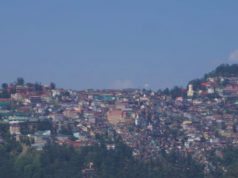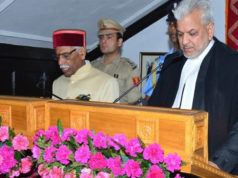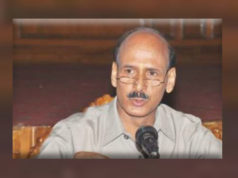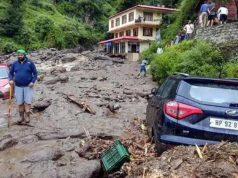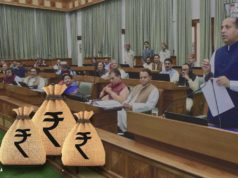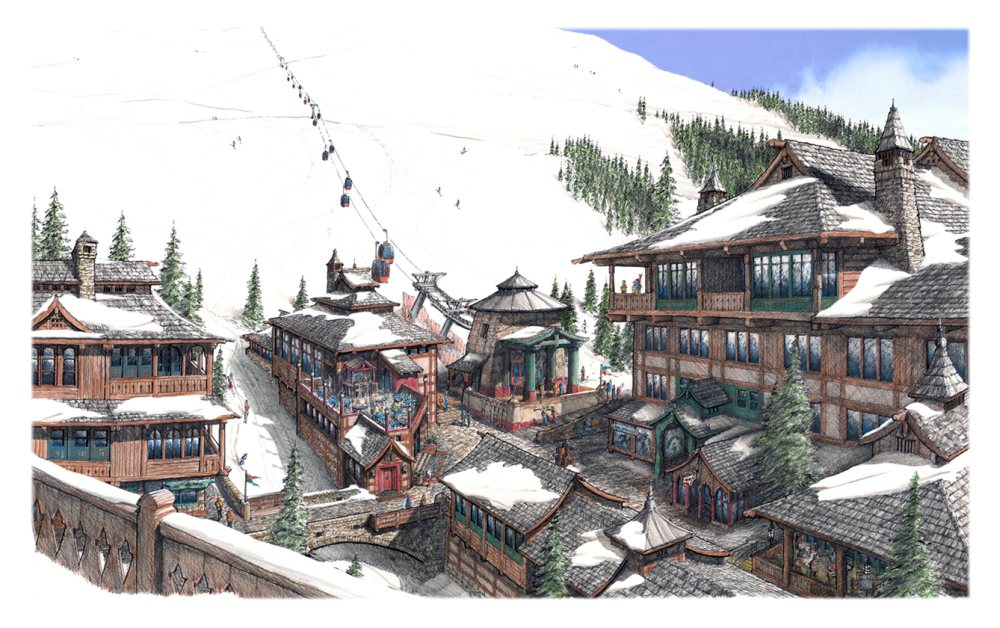 The proposed multi-billion Himalayan Ski Village project hanged in balance for over 12 years after a memorandum of understanding (MoU) was inked between the Himachal Pradesh Government and the Himalayan Ski Village PVT Limited – a company owned by Alfred Ford, American business tycoon and great-grandson of well-known Henry Ford, in 2005. Now, on Friday, the State Government, in a cabinet meeting, decided to cancel the MoU.
The proposed multi-billion Himalayan Ski Village project hanged in balance for over 12 years after a memorandum of understanding (MoU) was inked between the Himachal Pradesh Government and the Himalayan Ski Village PVT Limited – a company owned by Alfred Ford, American business tycoon and great-grandson of well-known Henry Ford, in 2005. Now, on Friday, the State Government, in a cabinet meeting, decided to cancel the MoU.
The project had made international news for the mercurial behaviour of the two governments. The previous cancellation of the project in 2008 had sparked a debate where India was seen as a hostile country for foreign investors. Referring to belief in local deities, British Daily Telegraph had taken a jibe at the attitude of the government towards foreign investment opportunities.
The Himalayan Ski Village has been rejected “as it is presented” to the gods. As keen students of the Hindu religion, Mr Ford and Mr Sims will know that, when the correct offerings are made, the gods are often open to persuasion,
the Daily wrote in its February 2, 2006, Edition.
With a proposed cost of $300 million, the project was perhaps one of the biggest foreign direct investments in the tourism sector of India. This mega project was being compared to internationally popular ski resorts like Vail and Davos. It was also seen as an alternative to Swiss Alps ski facilities. The proposed project was to be built on an area of about 115 hectares in the Kullu valley starting from Palchhaan village in Manali. Out of the total, about 70 percent land belonged to private parties.
However, a battle against this project begun soon after the MoU was signed. The locals and the then opposition Bhartiya Janata Party protested against the project on several grounds, religious and environmental reasons being the major ones. The resistance from the locals only grew after local deities were consulted.
About a dozen local deities, through their gurs (spokesperson), conveyed that no such intrusion should be allowed in the valley. These deities are something that no locals and even governments would dare to disobey. The role of these deities in lives of the valley’s people can be assessed from the fact that there are about 500 locals deities in the Kullu district only.
The BJP government came to power in 2008 and, in 2010, cancelled the deal with the HSV, which was challenged by the latter in the State High Court. The court rubbished the decision of the government and gave a green light to the HSV.
When the Congress regained power in the 2012 elections, it again facilitated the company to go ahead and develop the Village. Despite that, not even a single brick was laid till date.
The scale of the project could be assessed from the fact that on completion it would have accommodated about 4,500 visitors at the same time. The proposal was made for a 600-700 room five-star luxury resort, ski slopes for adventure sports, spas, gondolas, ropeways, entertainment facilities, and vacation homes etc. There isn’t any doubt that the project could bring tourism laurels for the State, however, at the same time, it would have tapped into local resources including water streams and forest wealth on a massive scale. The locals, who were dependent on forests for their livelihood or other requirements like fodder, woods, medicinal plants etc. would be have taken a hit. It also implied that a certain portion of the forestland would have become inaccessible for the locals.
At the same time, this Village was expected to create about 7,000 jobs for the locals. The Company had agreed to locals as 70 per cent of its employees.
Environmental activists also saw this project as an ecological hazard as it was to be developed between altitudes of 7,500 feet to 14, 000 feet – an ecologically fragile zone. They reasoned that the Kullu-Manali are already overcrowded and over-burdened with haphazard construction. Such a gigantic project would attract more visitors, which would lead to more traffic and increased carbon footprints, the activists argued.
Other reason included large-scale deforestation due to the diversion of land, slope destabilization, diversion of water streams and other common resources.
However, the objection from the locals and local deities proved to be the final nail in the coffin, and finally, after coming to the power, the BJP Government has again scrapped the MoU.





